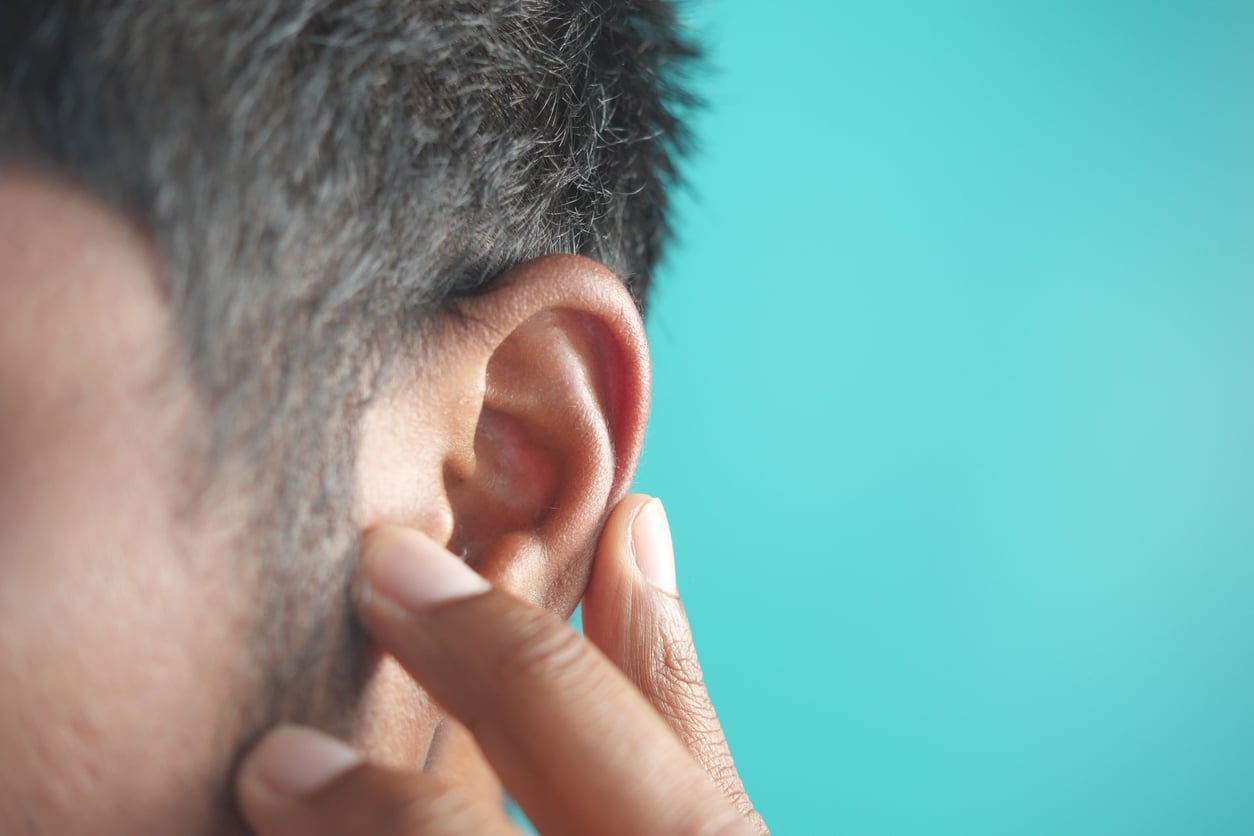Unilateral tinnitus can develop for a variety of reasons ranging from medical conditions to lifestyle factors. Some of the most common causes include:
- Ear infections or blockages: Excess earwax and fluid buildup can lead to tinnitus.
- Hearing loss: Exposure to loud noises, such as concerts at Miller Theater, can damage hearing and lead to tinnitus.
- Ménière’s disease: This inner ear disorder affects fluid balance and can cause tinnitus, vertigo and hearing loss.
- Injuries: Head and neck injuries impact the auditory system and cause tinnitus in one ear.
- Blood flow issues: Irregular circulation near the ear, known as pulsatile tinnitus, can create a rhythmic pulsing sound.
Diagnosing and Managing Unilateral Tinnitus

If you are experiencing tinnitus in one ear, it’s important to see a doctor. Ear, nose and throat specialists may use hearing tests, imaging scans and blood flow assessments to diagnose unilateral tinnitus.
There is no cure for tinnitus, but it is possible to manage symptoms. Approaches vary based on the cause and may include:
- Removing blockages: Treating an ear infection or removing earwax can provide relief.
- Hearing aids: These can help restore balance for those experiencing hearing loss.
- Sound therapy: White noise machines or customized therapies can help mask tinnitus.
- Lifestyle adjustments: Managing allergies and reducing exposure to loud noises can minimize symptoms.
If you experience tinnitus in one ear, especially if accompanied by dizziness, hearing loss or balance problems, see a doctor. Early intervention can prevent worsening symptoms and improve overall ear health.
Schedule a consultation with Advanced Hearing today.


